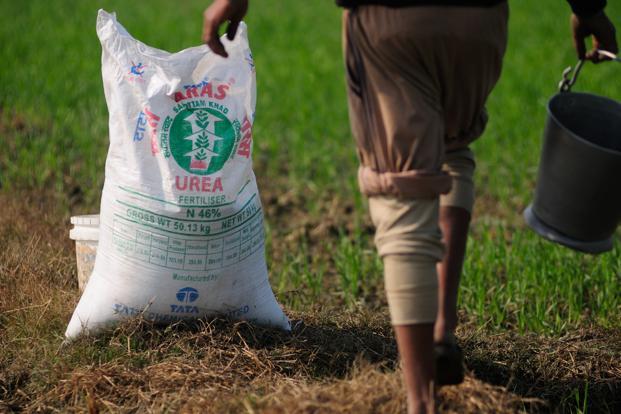
Mumbai: Tata Chemicals Ltd has agreed to sell its urea plant in Babrala, Uttar Pradesh, to the Indian unit of Norway-based Yara International ASA for Rs.2,670 crore, as it seeks to position itself as a maker of consumer products rather than fertilizers.
The transaction, the first cross-border deal in the fertilizer industry, doesn’t include specialty products and complex fertilizers. Tata Chemicals will continue to own the brands Paras, TKS and Daksha.
“This marks a decisive move on the part of the company to move forward on its strategy to build consumer business, while maintaining leadership in inorganic chemicals business and focusing on the farm business through its subsidiary Rallis India Ltd and Metahelix Life Sciences Ltd,” said R. Mukundan, managing director of Tata Chemicals.
Tata Chemicals, the maker of Tata Salt, has been trying to exit the fertilizer business for at least two years as part of that strategy, aimed at moving away from a segment driven by government regulation.
In the past, Tata Chemicals, the world’s second largest soda ash maker, said it had capped its investment in the fertilizer segment. In the year ended 31 March 2014, Tata Chemicals restructured operations of two overseas fertilizer plants, shutting down one and suspending operations at the other.
“We have built scale in soda ash business and we are in the process of building scale in consumer business,” Mukundan said, adding that Tata Chemicals will reinvest proceeds from the sale of the Babrala plant in the consumer and inorganic chemicals business.
“There are exciting growth plans for speciality chemical business and consumer business. We will continue to invest in these businesses. This deal will bring a lot more focus on these two verticals,” Mukundan added.
Tata Chemicals entered the spices market last year with an initial roll-out in Punjab and other parts of north India. It is evaluating diversifying into staples such as rice and attaand value-added products.
The divestment of the urea business by Tata Chemicals will unlock value for the company, strengthen its balance sheet and help it pursue growth in line with its strategy.
The deal will also help to retire part of its debt, which amounted to Rs.8,694.25 crore on a consolidated basis as of 31 March 2016.
The urea business, along with the assets, liabilities, contracts and deeds, will be transferred to Yara Fertilizers India Pvt. Ltd on a so-called slump sale basis. Slump sale entails the transfer of one or more businesses for a lump-sum consideration without values being assigned to individual assets and liabilities.
A person close to the development said Tata Chemicals will completely exit the fertilizer business gradually. He requested anonymity.
Mukundan was non-committal.
“We have sold Babrala. But we have Haldia with us,” he said, referring to another fertilizer plant in West Bengal, adding that the company was open to selling the phosphatic business if an investor came forward.
Pankaj Kalra, senior executive director at Kotak Investment Banking, said the deal was beneficial to both Tata Chemicals and Yara India.
For Tata Chemicals, the valuation is attractive at 7-8 times its operating profit. “Now, Tata Chemicals can focus on chemicals and consumer division. For Yara India, it is an entry into the world’s second largest fertilizer market,” Kalra said.
Yara India’s parent Yara International was founded in 1905 to meet an emerging famine in Europe.
Today, Yara has a worldwide presence, with close to 13,000 employees and sales to more than 150 countries.
“This acquisition represents another significant step in our growth strategy, creating an integrated position in the world’s second-largest fertilizer market. India has strong population growth and increasing living standards, and significant potential to improve agricultural productivity,” said Svein Tore Holsether, president and chief executive officer of Yara.
The Babrala plant, commissioned in 1994, has annual production capacity of 700,000 million tonnes of ammonia and 1.2 million tonnes of urea. It generated revenue and Ebitda (earnings before interest, tax, depreciation and amortization) of $350 million and $35 million, respectively, in the financial year ended 31 March.
Yara has operated in India since the 1990s, focusing in recent years on premium product sales in the west and south of the country, delivering strong volume growth and margins well above Yara’s average for the region.
The agreement will be subject to regulatory approvals and sanctioning by relevant courts in India, a process which is expected to take 9-12 months.
Holsether said Yara had been supplying fertilizers in India for more than two decades and the deal will reinforce its presence in the country.
“India is an attractive market. This deal will give scale to further accelerate our business in India,” Holsether added.
[Source: Live ment]




